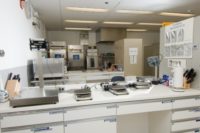DSM Takes Verenium

The acquisition includes Verenium's oilseed processing business and IP portfolio, licenses for certain food enzymes and access to biodiversity libraries that Verenium will create using proprietary technology. The 2012 sales of these businesses are estimated at about $ 15 million, growing rapidly in the coming years.
Per a company press release, the purchase by DSM of these assets fully supports DSM's strategy for its Nutrition cluster, "continued value growth" and strengthens and broadens DSM's enzymes business and capabilities. With the acquisition of these assets and licenses DSM will further strengthen its industrial biotech activities (e.g. in oilseed processing) and reinforce its food enzymes innovation pipeline.
Verenium, headquartered in San Diego, has developed a number of enzyme products and product candidates for use in industrial processes. Verenium's enzyme products minimize pollution by reducing or replacing harsh chemicals used in industrial processes while also enhancing yields in their customers' processes.
DSM acquired Verenium's oilseed processing business, including the R&D portfolio and partnership agreements. As part of the agreement, a number of Verenium employees will be offered to transfer to DSM. Verenium has developed PurifineR PLC, an enzyme that offers crop-based oil producers a sustainable way to improve yields as well as overall processing economics. The annual market growth for enzymes in the global crop-based oil market is expected to be about 50% in the coming years with the market potential estimated at more than USD 350 million.
DSM also acquired exclusive world-wide licenses to alpha-amylase and xylanaseenzymes within the food and beverage markets. The market size for food enzymes alone is more than USD 1.3 billion.
In addition, DSM will have access to the newly developed bio-diversity collection and library being created by Verenium. By extracting microbial DNA directly from collected samples the slow and often impossible task of culturing individual microbes in a laboratory is avoided. Utilizing ultra high-throughput screening technologies, Verenium mines its collection of billions of microbial genes in search of unique enzymes.
Stephan Tanda, member of the DSM managing board and responsible for the Nutrition cluster, said, "This acquisition will broaden our enzymes business and fits very well in our strategy of continued value growth for our Nutrition cluster. It will also further support our leading industrial biotechnology position."
From the March 27, 2012, Prepared Foods’ Daily Update
Looking for a reprint of this article?
From high-res PDFs to custom plaques, order your copy today!





